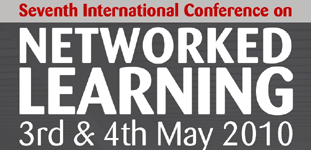

Getting to know you, getting to know all about you: how does text-based communication affect the way we relate?
Hilary Thomas
Lancaster University, Lancaster, United Kingdom
Abstract
The use of multimedia increasingly allows us to simulate experiences online that are closer to those we have face-to-face, but text remains a dominant and technically straightforward simple format for online communication, especially within the context of creative writing courses. But how do we relate to each other through text? What is the effect of communicating this way? How are our impressions of each other formed?
In this paper I identify some of the factors which influence how we make our interpretations of each other through text- based communication; and explore the way that participants come to feel about each other within an online creative writing course, where working together with peers is an integral part of the course design.
Set at the early stages of my research, this paper is the result of a small exploratory project designed to identify key avenues for inquiry. The snapshot produced from responses in five interviews highlighted three key points:
(1) Participants speculate about what they do not know about each other; extrapolate from clues in the content and style of each others' writing both consciously and unconsciously; and project into gaps in information in ways that sometimes reveal more about themselves than bear relation to their co-participants.
(2) An underpinning objectivist epistemology that holds there to be an external and true reality may serve to colour participants' experiences when they do not have access to the cues with which they are familiar. This may lead to them doubting the ‘accuracy' of their interpretations of one another though the text they read online and in turn may contribute to feelings of uncertainty.
(3) Consideration needs to be given to the way that interviews are used to gather this type of data, with attention being given to enabling participants to articulate their feelings. This includes taking account of interview medium, pre-existing relationships and the difficulty in finding language to articulate what is felt.
I present more questions than answers, but suggest that further inquiry should focus not so much on individual participants and the internal worlds they project, but on pursuing an interactional model that can provide ‘a robust framework for analysing intersubjectivity' (Hutchby, 2001). Some of this inquiry may draw from the practices and theorising about creative writing, and I suggest that in turn understanding may contribute to ideas about creative writing course design.
| About NLC | Welcome Messages| Acknowledgwments | Conference Proceedings| Keynote Speakers| Index of Presenting Authors| Contact |